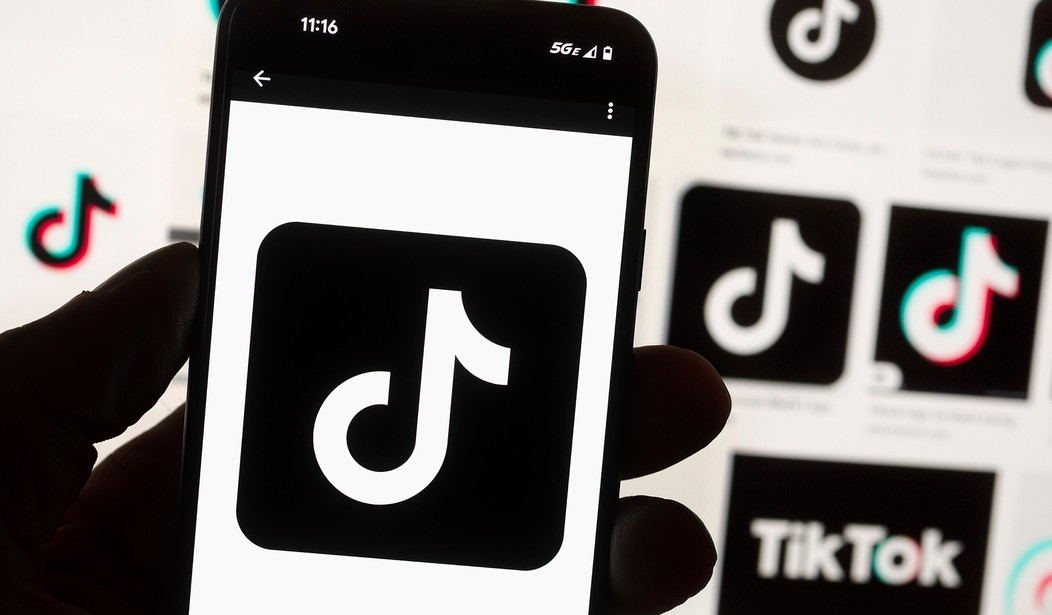The House of Representatives just passed a bill that mandates the divestiture of TikTok from ByteDance – a company under complete control of the Chinese Communist Party – in a 352-65 vote.
Unfortunately, lawmakers are considering separate bills that would undermine the TikTok divestiture bill by enabling foreign adversaries to circumvent app stores and infiltrate American devices. Congress should not undermine the progress they have just made in protecting American data from nefarious foreign actors.
The “Protecting Americans from Foreign Adversary Controlled Applications Act” (H.R. 7521) prevents American app stores or web hosting services from carrying apps that are under the control of congressionally designated “foreign adversaries.” The bill, introduced by Reps. Mike Gallagher (R-Wis.) and Raja Krishnamoorthi (D-Ill.) give covered apps 180 days to divest or face a full ban from American app stores and web hosts. A banned app can regain access to the American market by divesting from the foreign adversary, a designation that only includes Russia, China, North Korea, and Iran.
If H.R. 7521 becomes law, TikTok would have to divest from parent company ByteDance, a company owned and operated by the CCP. Time and time again, reports have indicated that the CCP uses data collected through TikTok to wage espionage campaigns against the United States. TikTok’s algorithm is designed to give the CCP virtually unlimited access to American data.
With the White House’s support, the onus is now on Majority Leader Chuck Schumer (D-N.Y.) to schedule a vote on the Gallagher/Krishnamoorthi bill. Unfortunately, two other bills under consideration would blow a massive hole in H.R. 7521 and undermine efforts to protect American devices from infiltration by foreign adversaries.
Recommended
Reports indicate that lawmakers may soon reintroduce the “Open App Markets Act” and move forward with the “American Innovation and Choice Online Act.” Broadly speaking, both bills enact new government mandates on smartphones. OAMA and AICOA would force all app stores to enable “sideloading,” which could allow users to download apps directly from a website instead of through a secure app store. This would force device makers to provide broad access to hardware, software, and APIs to external developers—both good actors and bad.
In a world where only the TikTok divestiture bill is signed into law, TikTok faces a simple choice: divest from CCP-controlled ByteDance or lose access to the American market. Apple and Google could no longer carry TikTok without violating the law, and the app would lose access to all American web hosting services.
OAMA and AICOA becoming law would completely undermine the TikTok divestiture bill. All TikTok would have to do is find a foreign web host and it would be able to keep funneling American data back to the CCP without divesting from ByteDance. Thanks to government-mandated side loading and weakened cybersecurity protections, American users would be able to access and download TikTok directly to their phones from whatever foreign-hosted website ByteDance sets up.
Remember – the CCP designed the TikTok algorithm to be as addictive as possible. TikTok users were phoning in death threats against lawmakers if Congress moved to pass the divestiture bill, with some even threatening suicide. While a ban from secure app stores would weaken TikTok, sideloading and other workarounds would allow TikTok addicts to continue to deal their digital fentanyl with or without a divestment from the CCP.
To be clear, the OAMA and AICOA loopholes are not an argument against signing the TikTok divestiture bill into law. Rather, it is a warning to lawmakers not to undermine the progress they have just made at preventing foreign adversaries from collecting and weaponizing American data.
Tom Hebert is the Director of Competition and Regulatory Policy at Americans for Tax Reform and executive director of the Open Competition Center
























Join the conversation as a VIP Member